What is a school with only "gifted" children like?
Visiting Choice School for Gifted Children in Vancouver
Hello, friends.
We visited the Choice School for Gifted Children last week. We had spoken with the principal while we were in Costa Rica, but both parties agreed Beanie would benefit from a three-day trial before we could consider enrolling her at the school. Unlike forest schools, this was a new kind of environment and we didn’t know if it would be right for her.
Now that we are here in Vancouver, we thought it would be worth seeing the school in person and getting a better feel for whether it would be a good place for Beanie—if not now, then perhaps in the future.
Choice School is a nonprofit independent school, and the only school in British Columbia that is designated by the province as a Special Education School for the Gifted. The school has 47 students across the grades, from kindergarten through Grade 8 (expanding to Grade 9 and beyond as their oldest cohort ages). So, like many of the schools Beanie has attended, it is very small. We were told that mixed age classes are about 10 students each, and they would not exceed 15 students. Each class is taught by a teacher and an assistant, so the teacher-to-student ratio is excellent.
The principal, Sukhbir Bolina, kindly made time to chat and show us around. He took pains to point out that the school doesn’t simply focus on academics—it emphasizes holistic teaching, including lots of outdoor play time, music, art, and career exploration. I was impressed that they are well-equipped to offer these subjects, which most small schools aren’t able to do. They have a nice big gymnasium as well, for PE and games and general running around. And regular field trips to places like Science World and the Capilano Salmon Hatchery, “Choice Challenges” where students can explore interests such as woodworking or knitting, and Experiential Weeks where they dive into topics like Egyptology in-depth.
Some of the advantages that Choice School offers are common to other private schools we have encountered, such as wobbly stools, beanbags and fidget toys (which Acton Academy Concord also offers) that help kinesthetic learners— people who need to move as they learn—better absorb information. Choice School does go a step beyond, providing exercise bikes in some classrooms (which one student was using when we visited). We also saw a student wearing headphones in class because they helped him focus better.
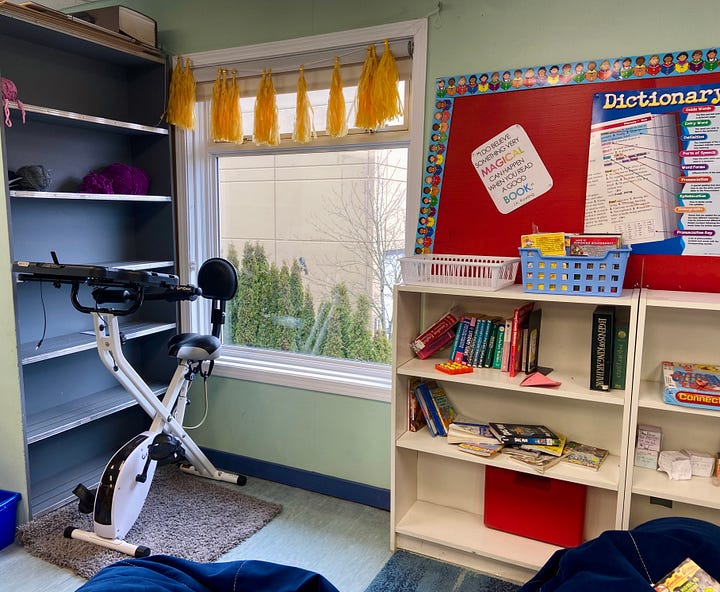
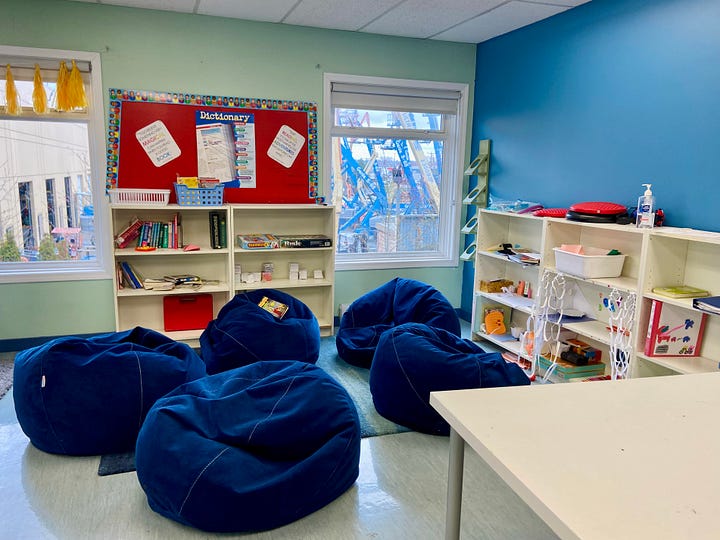
The acknowledgment that everyone learns differently is wonderful.
While we were walking around, Principal Bolina mentioned several times that gifted children learn differently from their peers, and could face challenges in regular public classrooms with not having an optimal learning experience, and feeling isolated because they recognize they are not the same as others. He pointed out one student who had just won the province-wide spelling bee, and another who was a chess champion.
The goal at Choice School, the principal said, was to teach the students the skills to eventually transition back to “regular” schools seamlessly and thrive there with their gifts.
After seeing all the campus and curriculum offer, we went back to Principal Bolina’s office to conclude our chat. I wanted to know how Choice School determines which students are “gifted” and a good fit for the school.
The principal said Choice School makes determinations on fit based either on a psychologist’s assessment, if available, or after observing the child during the three-day trial.
Our experience with Beanie is that she is very bright. She might be especially gifted in specific areas that have yet to be discovered. Or she might not. The chess and spelling bee champions are certainly gifted, and a school like Choice are more clearly a good…choice for them. But what about a student like Beanie—does a school like Choice provide a good learning environment?
I asked Principal Bolina this. “What about students who are very smart but not necessarily a prodigy in a specific way?”
He responded, in essence, that the school was a good fit for any student who is way ahead of their classmates at regular school, finishing their work in 20 minutes when it takes others an hour, and then sitting around bored while they wait.
Taz and I were honest during our meeting about our hesitations—at one point, I bluntly said that we were not sure if we would like to label Beanie as “gifted” at a young age. Principal Bolina assured us that the school took pains not to label children, at which point I rather tactlessly pointed out that the label was in the name of the school.
He patiently explained that the school is careful to not make feel that being gifted is in any way a negative label. I see his point, and I appreciate it. Especially if a child already feels different, already knows they are different from their peers, being supported in their difference is powerful. For students who are prodigies in one area or more, this is clear and I’m happy there is a school where they can feel comfortable to be themselves.
I’m still uncertain if this could be the right school for Beanie. It would be worth doing the trial at some point to find out, but the timing doesn’t currently work. After our visit, my conclusion is that the school is solid. Choice School works hard to meet the students where they would learn best, supporting their whole growth and providing learning tools that not only cater to learners who need to fidget or move as they’re learning, but also signal to all learners that there are different ways people do things, and that’s all OK.
Some of the benefits that Choice School offers are advantages that come hand-in-hand with small class sizes, and aren’t limited to a school for gifted students. The specialized attention and learning at their own pace is a fortunate benefit of Beanie’s schools, where the teacher-to-student ratios have been close to 1:5. And as I mentioned above, fidget toys and that sort of thing are also used at Acton Academy and similar schools.
It’s really being around gifted peers that makes this school stand out from others. This is a school where students’ gifts are acknowledged and not considered strange, because everyone is gifted in some way. The question is whether, for Beanie, this would be a positive factor that would inspire her to work harder and find her passions, or a negative factor that would make her question why she might not be a prodigy like some of her classmates. And is it good to define a child by the label of “gifted” at such a young age?
An argument for labeling children who learn differently—whether their special need is being “gifted” or otherwise—is getting the support they need. If Beanie had been in public school with large classes this entire time, we probably would feel we needed more support to optimize her education. But she’s been given good support in her schools, and I don’t think she is lacking. On the other hand, perhaps I do not realize what we are missing because we’ve not experienced this gifted school community.
I’d love to hear from any of you who have had experiences either being part of a gifted school/program, or have children who’ve done so. Was it positive or negative overall?
Pretty Good Things
Maybe they’re just hungry? (and other parenting pearls)
I just read Ryan Holiday’s most recent newsletter, 15 questions that will make you a better parent (and person). It’s worth a read; my favorite parts are:
Am I Cherishing The Garbage Time?
…Special days? Nah. Every day, every minute, can be special. All time with your kids—all time with anyone you love—is created equal. Eating cereal together can be wonderful. Blowing off school for a fun day together can be wonderful—but so can the twenty-minute drive in traffic to school. So can taking out the garbage or waiting in the McDonald’s drive-through.
In my pocket, I carry a medallion that says Tempus Fugit (”time flies”) on the front and “all time is quality time” on the back, so I’m constantly reminding myself to cherish the “garbage time.” Because it’s the best kind of time there is.
This is something I believe and yet must remind myself of more.
and also:
What If We’re Actually Just Hungry?
…Moms have long carried snacks in their purses for a reason. Because it will solve most problems. Soothe most frayed nerves. Calm down most difficult situations.
Somebody always forgets to eat. So feed them. Ask them if they’re hungry. Remind them that they’re hungry. Keep a tight meal schedule. Watch what happens.
Oh, also, when you’re grouchy and frustrated and anxious and short with your spouse and your kids—you might be hangry yourself. In 2014, researchers from Ohio State University found that most fights between couples are because someone is hungry. So, like taking a walk or taking five deep breaths, grabbing something to eat will probably solve most of your adult problems too.
Another Canadian chip flavor
More interesting chip flavors! This time, deeply Canadian. We bought the bag to try and it was all right. It’s no ketchup chip. Probably will not buy again. But will finish this bag because of course I will.
Girl Guide cookies
They’re called Girl Guides in Canada, not Girl Scouts, and there are no Thin Mints or Samoas or Tagalongs here. Just good ole chocolate and vanilla, in one box, no choices, very straightforward, very egalitarian. The Girl Scouts of USA sell 13 flavors, so they have a bit of an edge. (But you know what? Free healthcare here, so it’s hard to say who comes out on top.)
The Girl Guides have been out on the streets selling the cookies lately, so we bought boxes on two different occasions and Beanie brought a box to school to share with her class. Cookies are delightful. The kids enjoyed them.
Spring posies and blooming blossoms


Spring is here, and the trees are in bloom. Beautiful, and we did not have to go all the way to Japan to see the lovely blossoms. Cherry and plum trees are all over Vancouver; these photos were taken in the Mount Pleasant area of the city.
I hope you are having a good spring, wherever you are.


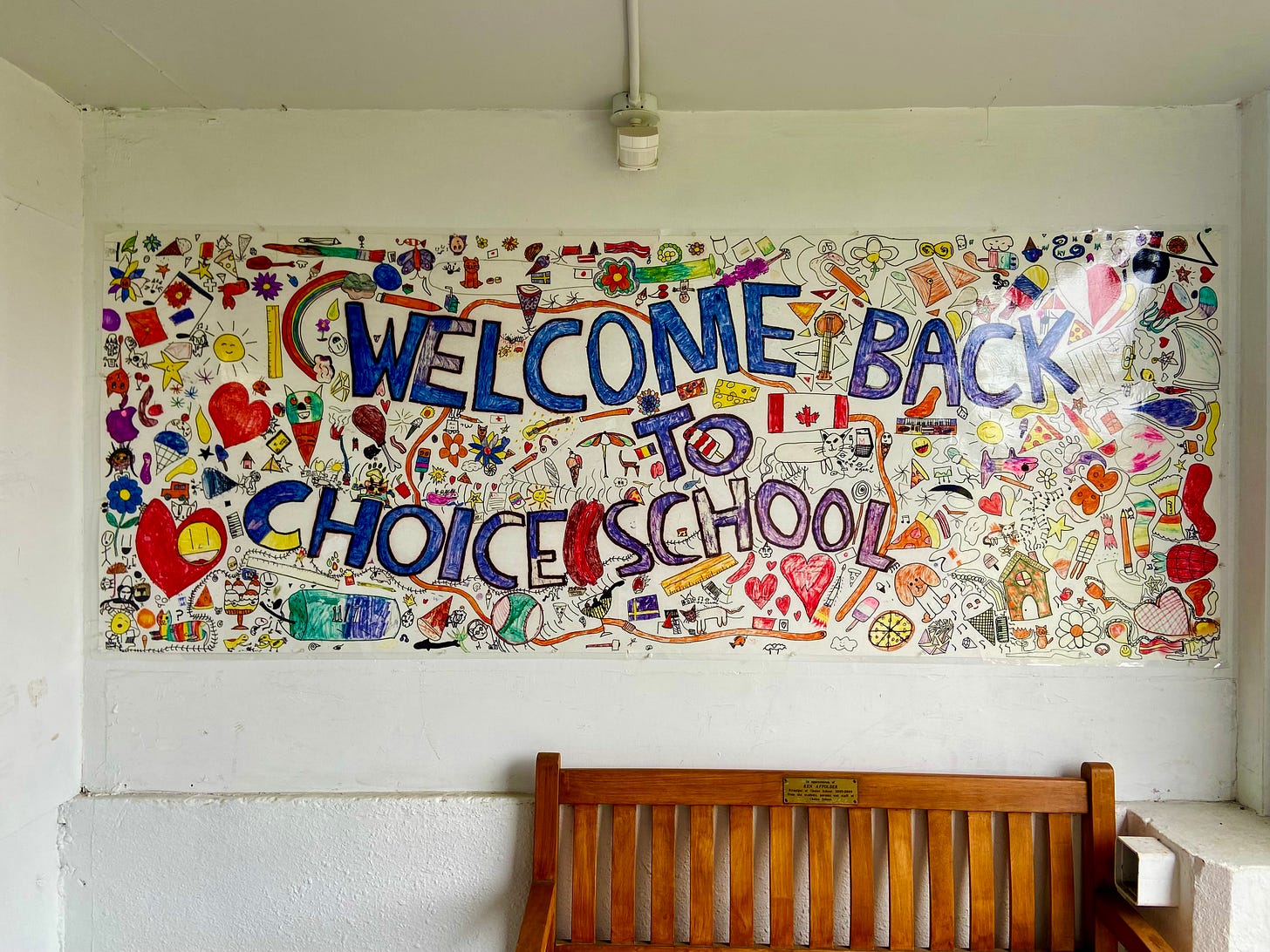
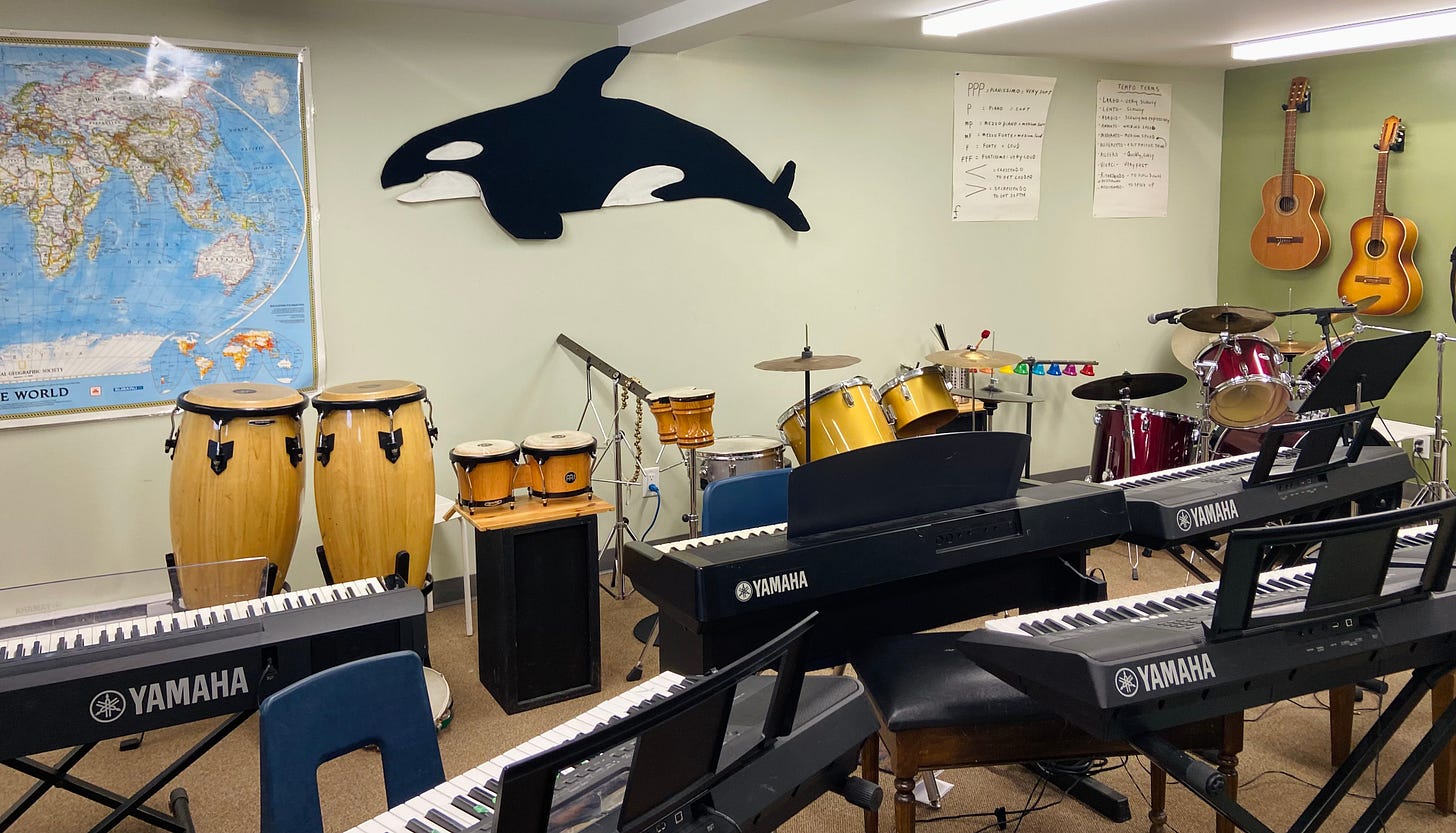
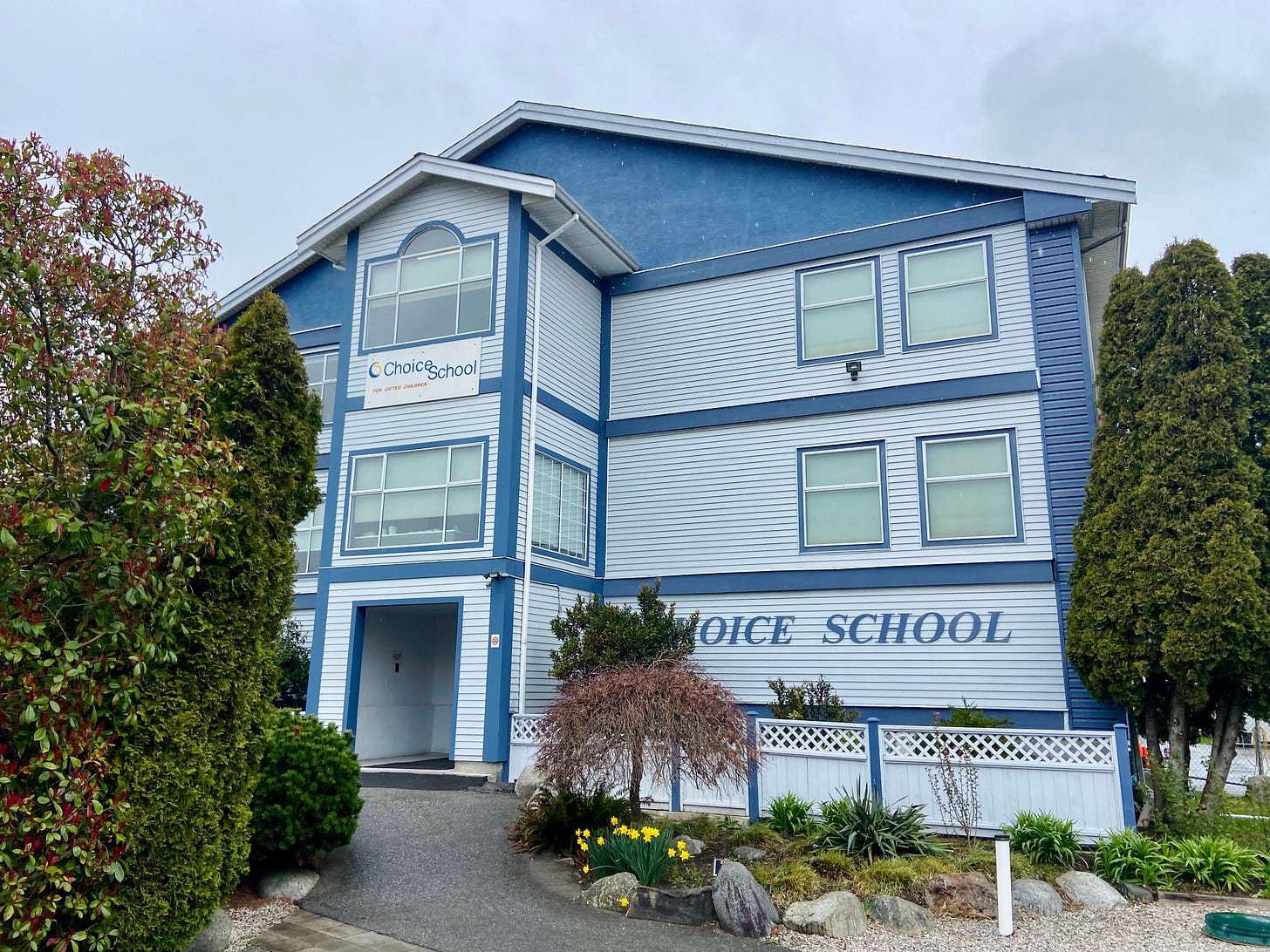
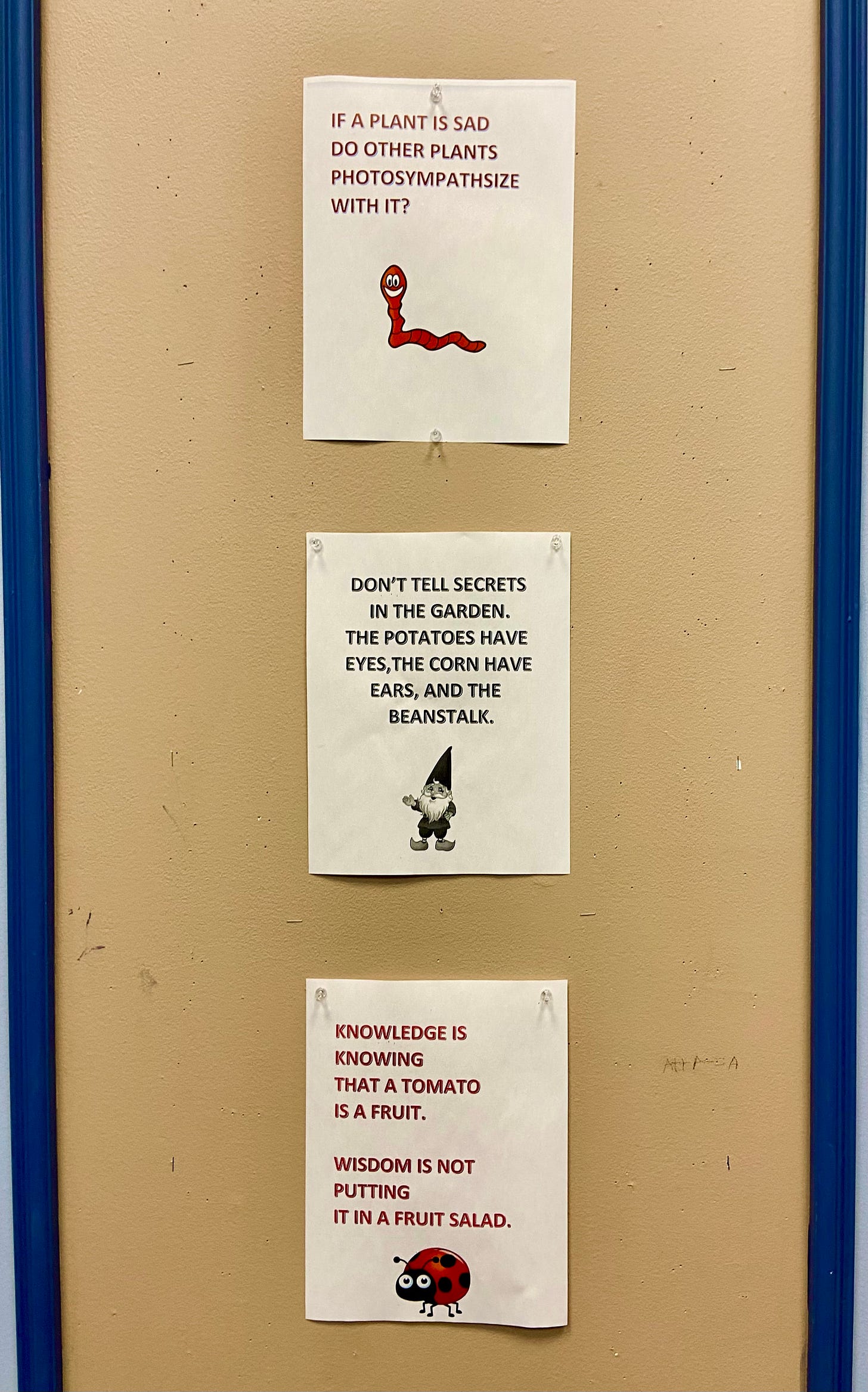

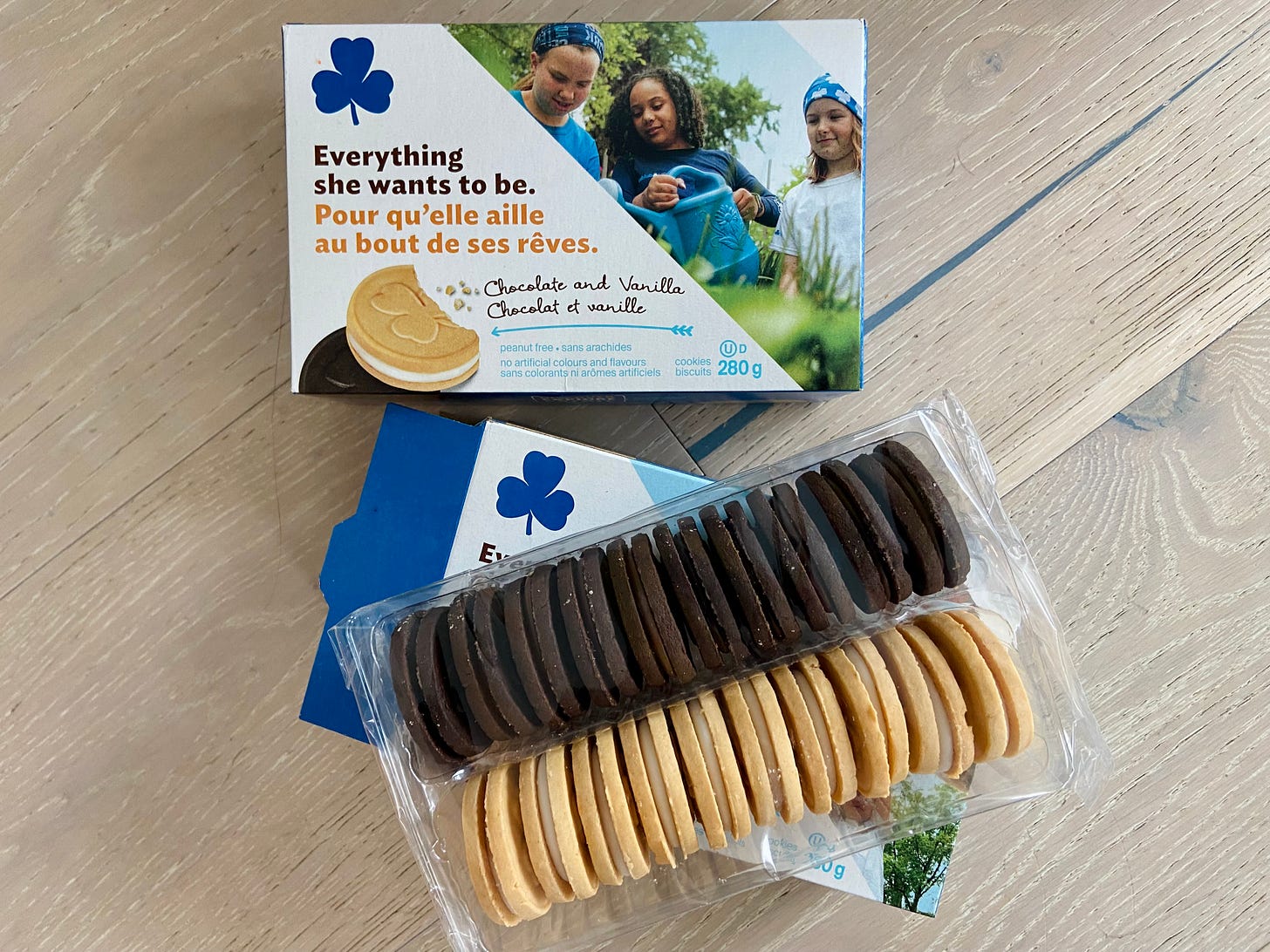
I loved this deep dive into a gifted school for children! The photos really compliment it too. Are you looking to put your child in the school or were you just interested from a journalistic POV